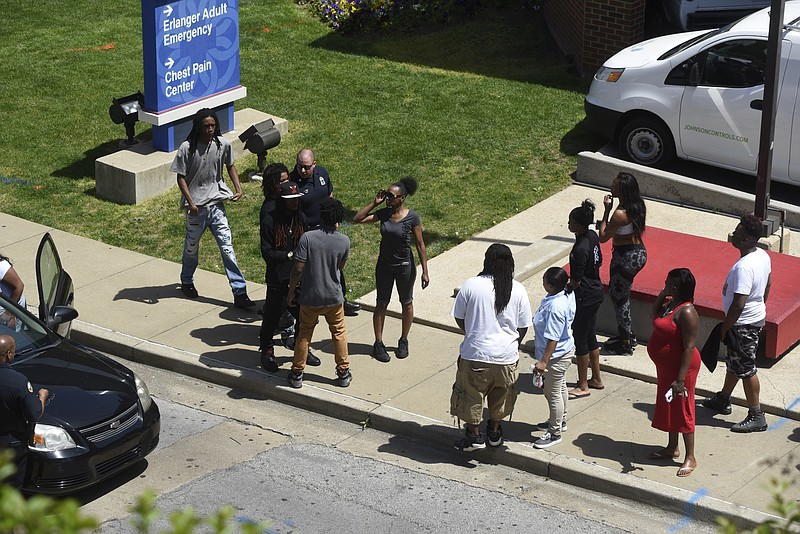Have you lost count yet? I'm talking about gang shootings. They've come at such a dizzying pace the past week that "Another one?" has become Chattanooga's unofficial motto.
Now the finger-pointing has started.
Of course it has. Our society loves to nail blame to a single culprit. When something goes wrong a head must roll. This is true whether we're discussing a failing sports team, an underperforming business venture, or in this case Mayor Andy Berke's beleaguered Violence Reduction Initiative (VRI).
However, human sacrifices don't always correct a malfunction. And when it comes to crime like we're experiencing, pinning the blame on one person is a fruitless endeavor. After all (I'm borrowing a popular political line here), crime is downstream from culture.
Gang members didn't just decide to up and start shooting one another this week. A myriad of factors, deeply rooted and developed over the years, have led to the headlines we've been exasperated about.
Earlier this week, I was talking with a friend about this recent spasm of violence and he made the statement that to reverse the trend, perhaps Chattanoogans need to approach this problem similarly to the way they've tackled other ailments.
When you think about it, Chattanooga really is a city of problem-solvers. I mean, renaissances don't just happen out of thin air. Pondering this, it struck me that there are two hallmarks of Chattanooga problem-solving absent from our current squabbles over the VRI: innovation and long-term commitment.
I'm not saying the VRI isn't innovative. Rather, it's that a key element of innovation seems to be missing in all the finger pointing. What is it? Well, if you walked into any of the young companies popularly touted by "Gig City" boosters, each one operates with a "fail fast" mindset. This means that in testing new ideas, figure out as quickly as possible what works and what doesn't. If a concept flounders, don't immediately scrap it. Pinpoint defects and try fix them.
The VRI is still in its infancy. It's a startup. Could it eventually turn out to be a complete failure here? Certainly, but it's also still in its tinkering phase. To chunk it now would be to abandon the innovative spirit driving the second phase of Chattanooga's revival. Sure, the VRI has proven successful in other cities, but we're not other cities. This town has its own unique circumstances, and the initiative needs to be customized to meet those nuances head on.
Going back to culture, we didn't get here overnight, and therefore a silver-bullet, quick-shot repair is a fantasy. Which brings me to the second thing the VRI finger-pointing misses: long-term commitment.
Question: Why is it acceptable to set long-term timelines on education goals like the ones guiding Chattanooga 2.0 and Drive to 55 (both aiming for the year 2025), but not crime? There are many shared variables between crime and low education attainment. Why do we have different expectations for how long it will take to solve those maladies?
Also, when did the community visioning processes begin that led to Chattanooga's rebirth? When I was in grade school. Likewise, if the VRI is going to work, it's going to take time and it's going to take (possibly substantial) revision.
Most importantly, it's going to take humility. The humility to be transparent and own failures. The humility to put ego aside and work through turbulence. And the communal humility to realize this is a shared burden among us all.
Chattanoogans are good at fixing broken things. When it comes to the VRI, it's time to get under the hood.
Contact David Allen Martin at davidallenmartin423@gmail.com and follow him on Twitter @DMart423.
